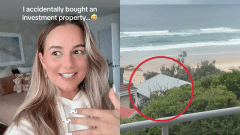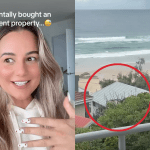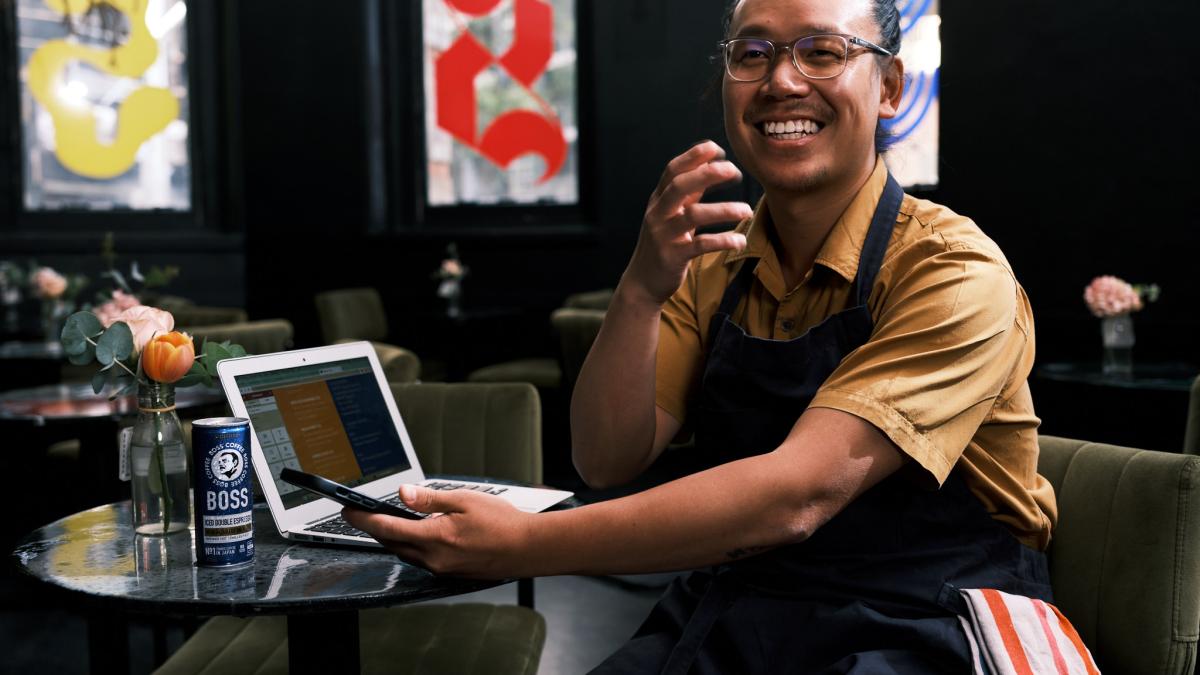
This article originally appeared on VICE Australia.
I often think about the first bar or the first restaurant ever created. I’m talking first ever. It’s something we’ll never really be able to pinpoint. Sure, we can make a rough estimate, study ancient texts, dig up some relics. But we’ll never really know who created the first place one could stop by and trade or barter for a bite to eat, or who poured the first ancient ale in a bar-like setting.
Humans have been eating and drinking since before we were even human, and the industry that feeds and waters us has constantly evolved to keep pace with our ever-changing needs and tastes. So naturally, a relatively minor pandemic in the grand scope of human history wasn’t going to spell the end of hospitality, but it did ask a hell of a lot of the industry and those that keep it ticking.
Michael Chiem and Chase Kojima are two such people; both are huge players in the Australian hospitality industry. We caught up with them to find out how they evolved their approach to life, their craft, and how they have navigated the ever-shifting uncertain waters of the COVID pandemic.
Michael Chiem
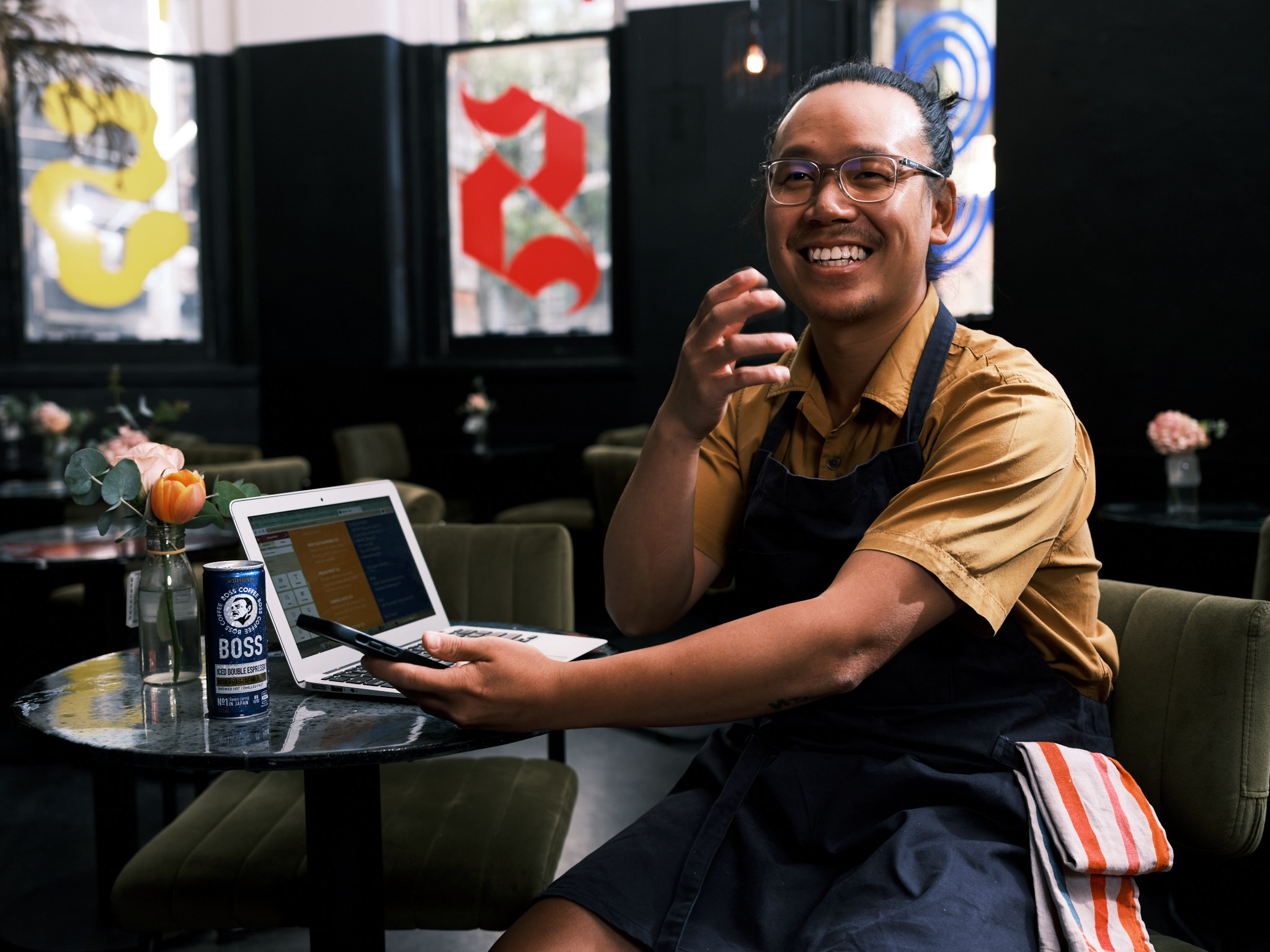
Michael Chiem is the founder of the hand-crafted PS Sodas and award-winning PS40 Cocktail Bar in Sydney. He was awarded the 2016 Australian Bartender of the Year and Bar of the Year 2020.
PTV: Hey Michael, you’re the founder of PS Sodas and the iconic PS40 Cocktail Bar, and a two-time bartender of the year winner. How the hell do you have the energy?
Michael: I absolutely love what I do. Serving up delicious beverages and enjoying the company of all our wonderful guests at the bar ain’t so tough. I would hate to know how many hours I clock each week but when you are working for yourself it is highly rewarding.
Where did it all begin? Can you take us through your career so far?
I fell into hospitality as a means to earn some money for some post-high school holidays and quickly found out it suited my personality. My career started as a runner in a casual restaurant when I was 16, and I landed my first bar job at 19 at the Novotel in Brighton Le Sands. My first “nice” hospitality job was at the Hilton at Glass Brasserie where I was lucky enough to learn the finer parts of working in a restaurant like sequence of service, restaurant etiquette, wine service – all that kind of stuff. It opened up a whole new world of eating and drinking to me.
I was studying medical science at university while working up until I opened up Black by Ezard as the Bar Manager in 2013, which gave me a leap of faith to defer my studies and concentrate solely on hospitality. In this role, our team picked up our first ever bar accolades and it was a dream come true.
In the lead up to PS40, I worked at Bulletin Place, Tio’s and Lobo Plantation. These are all world-class cocktail venues that gave me the necessary experience in small business I needed before going out on my own. PS40 opened up in 2016 with a bit of a DIY budget to it, and over the years we’ve gradually added to the space. It’s looking amazing now and I’m lucky to have such a stellar team lineup.
The pandemic has absolutely ravaged the hospitality industry – how did you adapt to a whole new and completely uncharted landscape?
I was an emotional wreck as we went into the first lockdown. We had seen some of our friends from overseas go into lockdown a few weeks before us and learnt from them about delivery and takeaway models, so we actually had done the groundwork to jump straight into it when it hit us.
We called the first delivery service “PS Sofa” and literally drove all around Sydney dropping off cocktails. From Mona Vale to St Clair to Cronulla – we went everywhere. Meg Litherland and Peter Seabrook who were working at the bar at the time also possessed amazing talent in design and website design which was quintessential in this change of business model. In the second lockdown, we sold “PS40 Snap Packs” and are still selling them currently.
What are PS40 Snap Packs?
They are our cocktail packs which we developed for our delivery service during lockdown and are still available for deliveries on Fridays via our website. There’s something there for everyone from light to heavy and citrusy to richer styles. The name originated from my love of Snack Packs and the optimistic outlook on the lockdown being a “snap” lockdown. Oh how wrong we were.
What do you love most about what you do?
I love the strong sense of community that working in a great bar provides. Our guests don’t just stumble upon the bar, they seek it out specifically to have a great time. Our regulars have become our greatest friends and our neighbouring bars all support each other, whether it is lending some stock when you’ve forgotten to place your order or sending their guests our way as they head out for a night on the town.
Running a bar, bartending, pretty much every aspect of hospitality requires its own flavour of creative flair – how do you fuel your creativity?
Creativity isn’t easy. I find myself constantly in creative ruts and lows. Sometimes in hospitality, we love to overcomplicate drinks and food, so whenever I find myself struggling with creativity I try to keep things simple and head back to the cornerstones of what makes a great drink. Getting out there and eating out at different restaurants and exposing yourself to new ideas also helps me develop completely new ones.
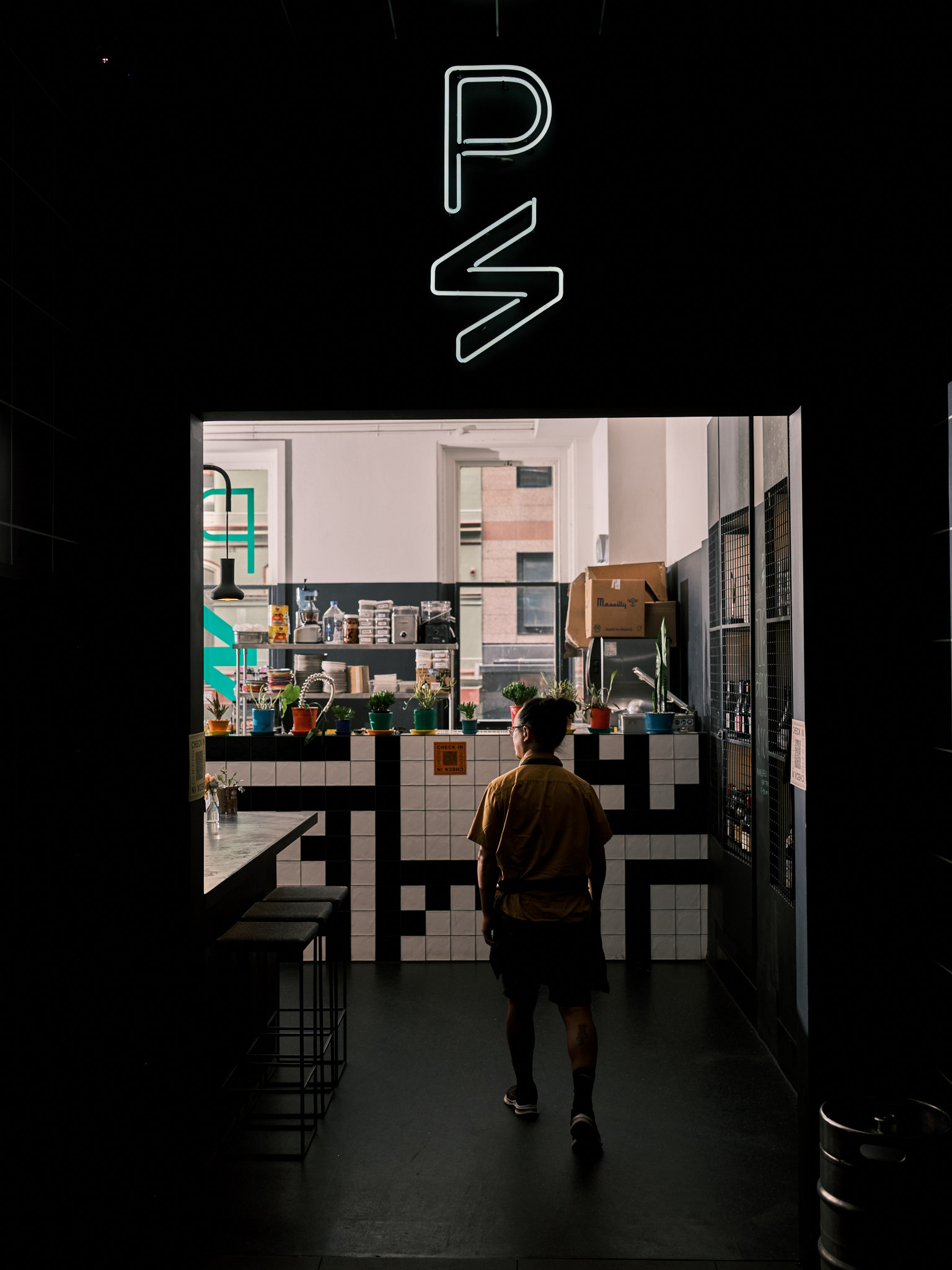
How do you start your day? Do you have a morning ritual?
My wife is a school teacher so wake up time is relatively early for a barman. We also just got a puppy – his name is Reggie and mornings are spent with him and admin from home which works well as I get far too distracted in the venue to get any solid computer work done.
You have a known love of Japanese food and recently collaborated with Japanese Chef Chase Kojima on a menu and Japanese Suntory Cocktail. How’d that go down?
Chase and I actually worked together at Sokyo 8 years ago and it was a pleasure doing a couple of nights of service with him again. We run a regular collaborative event called “Takeover Tuesday” at PS40, where we team up with a chef friend of ours to have some fun for the night. Since its inception, it’s been one of our busiest nights of the week and more importantly loads of fun.
Our service at the bar always aims to be casual, genuine and attentive, which I think is a great match for a restaurant night. It’s never fun going to a fancy, expensive restaurant for a night and feeling like you’re treading on eggshells constantly. The quality roll call of chefs has been core to the success of the Takeovers as well, chefs have big egos and want to make sure they are just as good as the previous chefs that have preceded them.
What do you find inspiring about Japanese coffee culture, cuisine and nightlife?
I’m inspired by the constant push for singularity and perfection. When you go to Japan there are many restaurants and bars that will hone in on a speciality rather than have too many different offerings on the menu. Japanese etiquette is a thing of beauty too, there are so many beautiful traditions and rituals involved with eating and drinking out that make it the best experience.
You’ve been to Japan a few times, what are your fondest memories of your time there?
My fondest memories are in the constant adventure of deliciousness whether it be low or high brow. You can go to a sushi spot and drop $450 on a meal or stumble into a convenience store to get a can of Suntory BOSS coffee plus an egg sandwich with some fried chicken for $5. Either way it’s a good time.
Chase Kojima
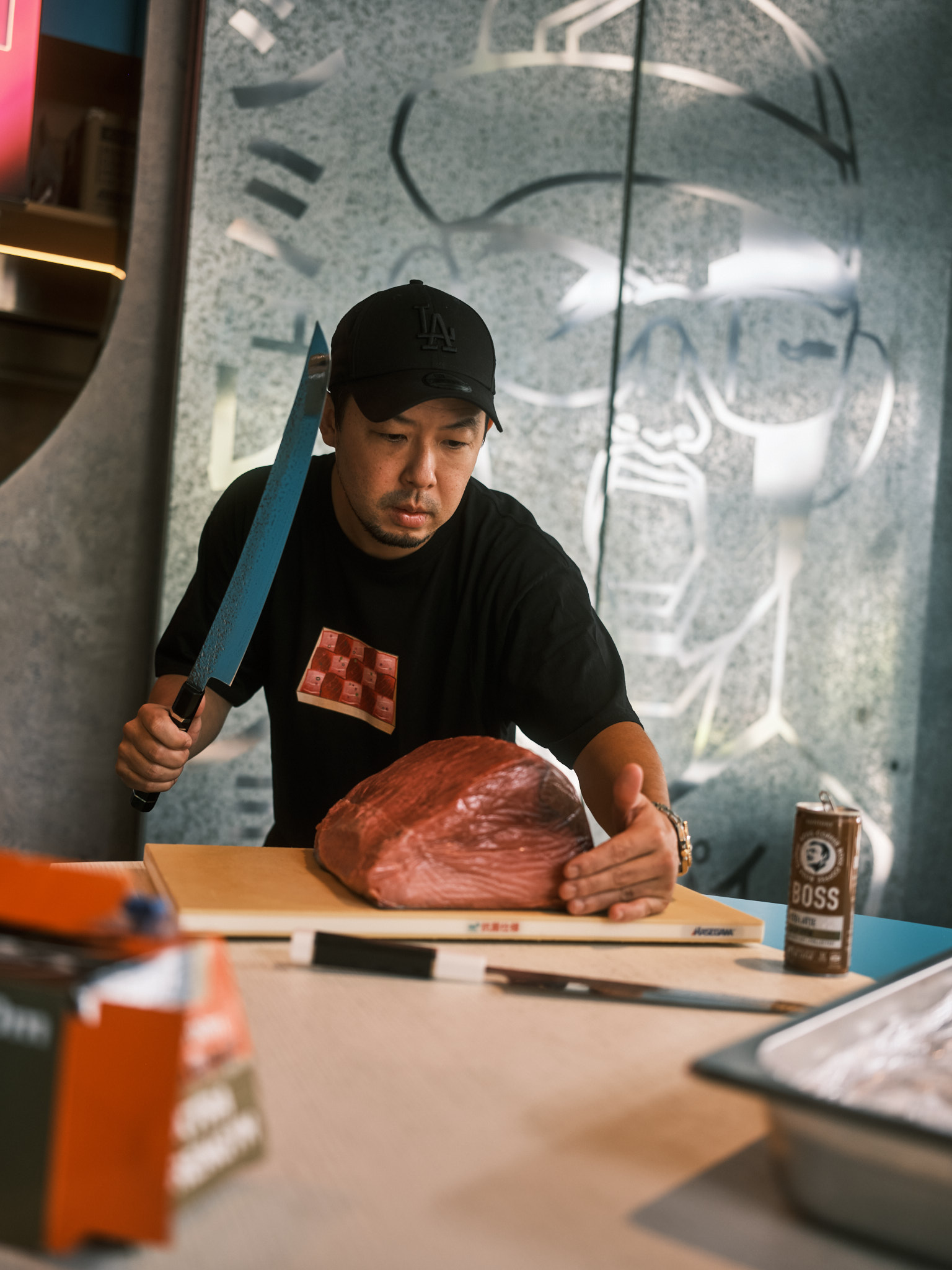
Chase Kojima is one of Australia’s leading and most influential Japanese chefs, with a number of restaurants under his belt including Sokyo (Sydney), Simulation Senpai (Sydney) and Kiyomi (Gold Coast).
PTV: Hey Chase, you’re known as one of Australia’s most influential Japanese chefs, but you were born and raised in the US – what led you to make the move to Aus?
Chase: I was headhunted by the original operators of The Star Casino. We first met in Las Vegas, then in Dubai and then in the Bahamas when I was working for Nobu Hospitality. They flew me first-class from Tokyo when I was on holiday and it was love at first sight when I arrived in Sydney. I haven’t left since.
Your father owned a restaurant in the States, and your grandfather is a fisherman in Hokkaido – do you feel a strong connection to your family through your craft?
My dad was an OG Japanese chef, and I’m sure he got it from the OG fisherman – his dad, my grandpa. His dad was super strict when it came to work in the kitchen. It nailed me down on the basics of Japanese cuisine. I am very grateful now that I’ve been through this training early in my career and I can focus on modern style with having a strong background in Japanese cuisine.
How did the pandemic affect you and what did you change to adapt to the new unknown?
I was one of the first people to pivot to focus hard on takeaway. This is how Simulation Senpai was born. I never had the chance to actually stop working during the pandemic. I’m always trying to think about new opportunities and taking an outside the box approach.
Do you have a specific way you like to start the day?
I believe in routine, successful people have their individually designed routines. Mine is very basic: a Suntory BOSS Iced Long Black coffee when I wake up and start emails and messages for the first 15-30 minutes, I fast till I have to do a tasting in one of my restaurants, usually till 5 pm. But I do drink a couple more coffees before that.
I hear you can often be found at the crack of dawn waiting for the latest catch at the Sydney Fish Market – do you ever get any time to sleep?
When I need to be there, I am always there. 4am, 5am, no problem. I sleep enough. But I don’t mind more sleep when I have time. But there’s never enough time.
You’re also known for giving out coffee at the Sydney Fish Market to cheer people up, what motivates you to do that?
It’s simple. I love good produce. When you go to the fish market or any markets in the morning and you “feel the moment” when you’re there it really powers you up with so much energy, it’s magical. It’s addictive.
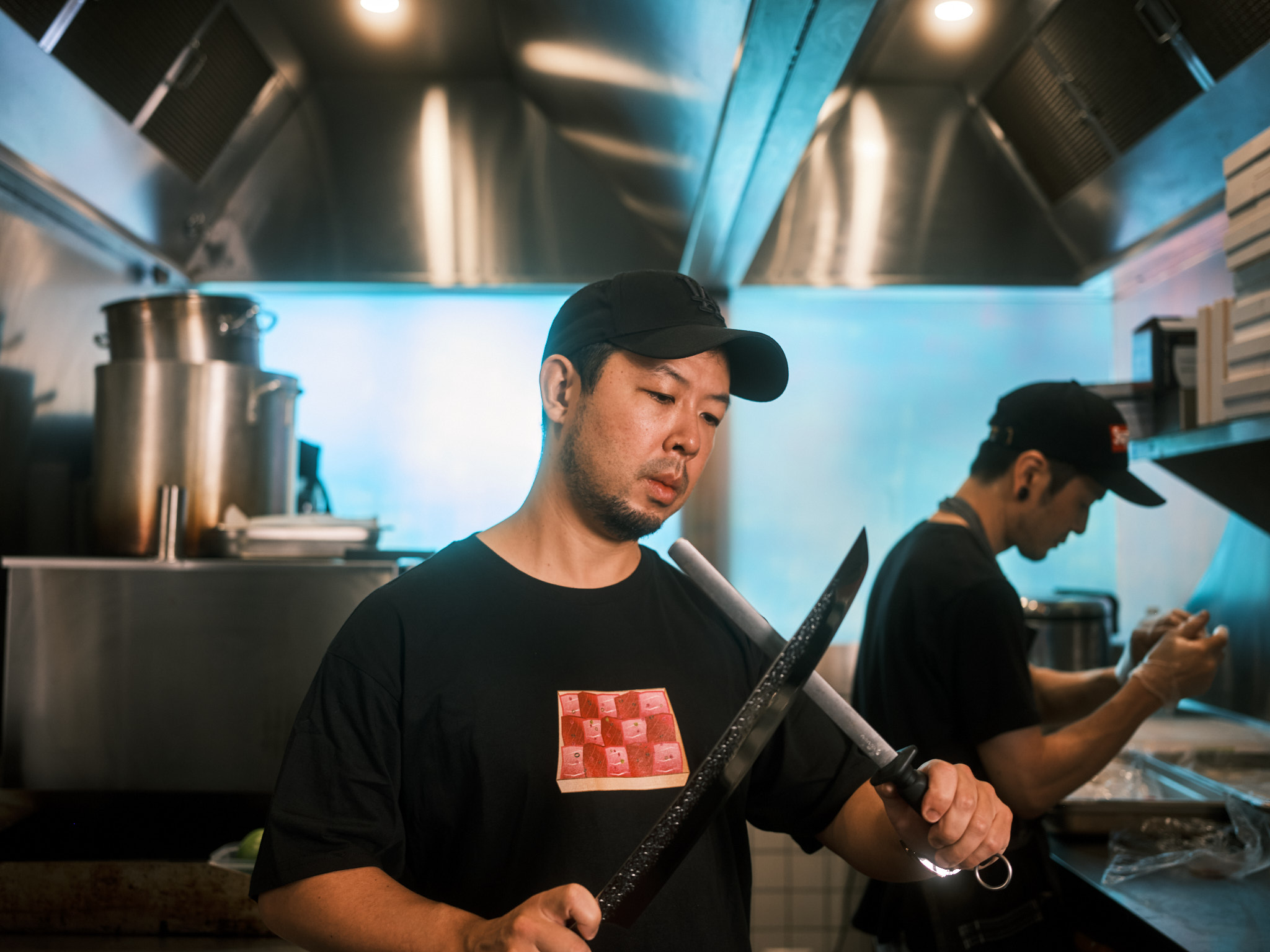
What do you find are the biggest differences between Australian and Japanese nightlife and bar culture?
Japanese people in Japan are secretly party masters, but also Japanese nightlife goes on every day till very very late, there are so many options to go out till morning if you wanted. Australia is more responsible and controlled better by the government. Search Shibuya meltdown on instagram for a glimpse of the true Japanese nightlife.
What about restaurant culture?
Japanese restaurants in Japan are really divided into the cheap but delicious to the super high end very expensive. A lot more personal and small restaurants in Japan, this is what Japanese people prefer. In Australia, the restaurant options are a lot more vast and it’s more of the event environment that we love here. Both are beautiful settings.



